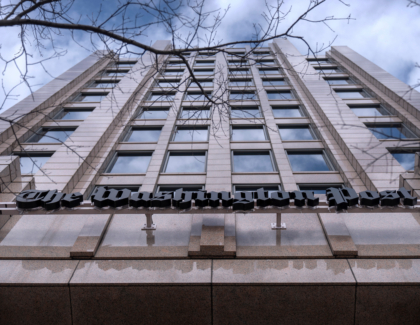Sign up for the daily CJR newsletter.
In a doleful shirt-tail, or footnote, to the New York Times story this morning on the appointment of a new managing editor at Time magazine, we learn this:
“Donald Barlett and James Steele, two investigative reporters who have chronicled the vicissitudes of the American economy for Time magazine since 1997, have lost their jobs in a budget squeeze.
“The reporting duo, who together won two Pulitzer Prizes and two national magazine awards, were on the payroll of Time Inc. Their jobs were among about 650 that the company has eliminated in the last six months.”
With that, there ended a chapter in American journalism the likes of which we may not see again. First at the Philadelphia Inquirer for 26 years and then at Time for nine years, Barlett and Steele came to be regarded by many as the premier investigative team in the business, and one that consistently met benchmarks to which others could only aspire. As Jim Warren of the Chicago Tribune has admiringly noted, in an age of singles hitters, Barlett and Steele swung for the fences every time, and seldom failed.
Their body of work is a testament to an exacting, relentless, painstaking and meticulous determination that other reporters could only shake their heads at as they admired it from afar. What they practiced was the opposite of “Gotcha!” journalism, or quick hits, or cheap shots. Rather, they burrowed in for months — sometimes years — at a time, and then returned with an examination of entire systems gone awry, whether it be an oil crisis, the nuclear waste dilemma, corporate welfare run rampant, the nation’s ramshackle tax system, or the economy itself.
Indeed, in the summer of 1992 Americans were presented with the unlikely sight of both Bill Clinton and Ross Perot waving paperback copies of America: What Went Wrong? in voters’ faces as they campaigned for president. The volume was actually a newspaper series that Barlett and Steele wrote for the Philadelphia Inquirer, republished word-for-word as a book, and it resided at #1 on the New York Times paperback best-sellers list for six months — an eternity in publishing.
This morning, as word moved through the journalism community that Barlett and Steele had been sacked by a corporation as wealthy as Time Warner, the all-but-universal response was dismay. “This,” said Sandy Padwe, a professor at the Columbia Graduate School of Journalism and a pretty fair investigative reporter himself, “is a disgrace. Two of the best investigative reporters ever, and they’re on the street? It’s a fucking travesty.”
John Huey, editor in chief of Time Inc., told the Times‘ Kit Seelye that as he cut away at corporate costs, he sought unsuccessfully to shift Barlett and Steele to the payroll of one or another of the company’s magazines, but he was unable to find an editor willing to take on the expense. “They’re very good, but very expensive, and I couldn’t get anyone to take them on their budget.”
For his part, Steele told Seelye that “apparently the decision was made at the corporate level not to fund this kind of work.”
The decision came just days after Huey had “promoted” Time managing editor Jim Kelly to the new post of managing editor of the entire magazine company. Kelly, Huey said, is to concentrate on “standards and ethics” at all Time Inc. publications.
In that task, Kelly could do worse than to start by re-examining Barlett and Steele’s body of work. There he will sample the highest standards that any journalist on the planet could aspire to.
Now, a confession for readers of CJR Daily: As an editor, I worked with Don Barlett and Jim Steele for more than 20 years in Philadelphia and six at Time Inc.
The talent was all theirs. But the pleasure was all mine.
Has America ever needed a media defender more than now? Help us by joining CJR today.






